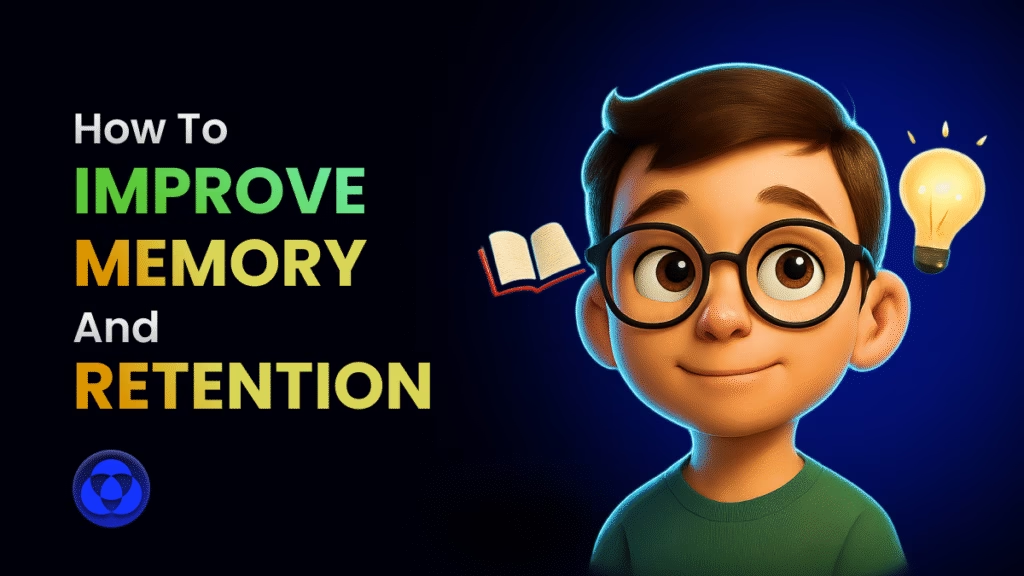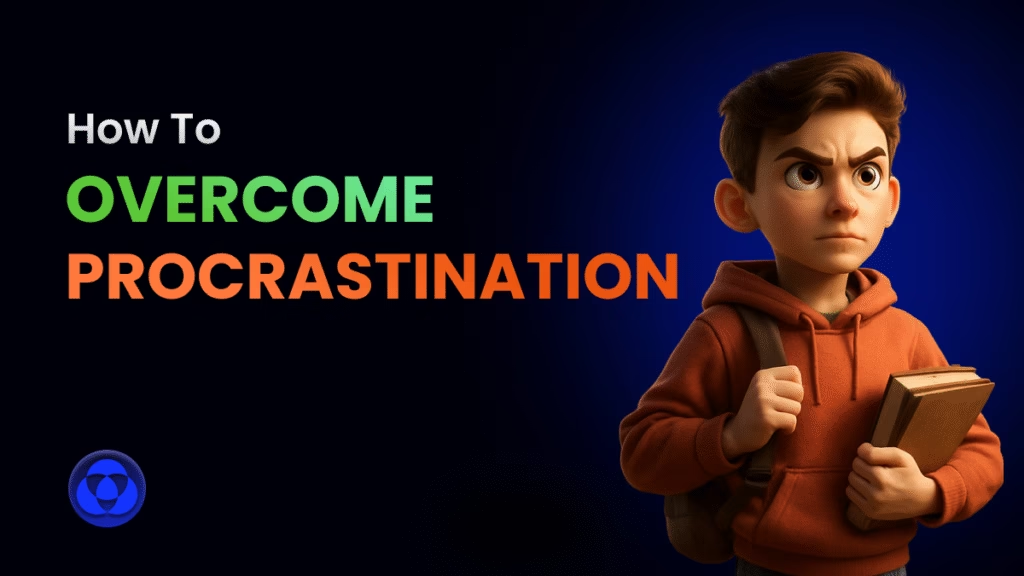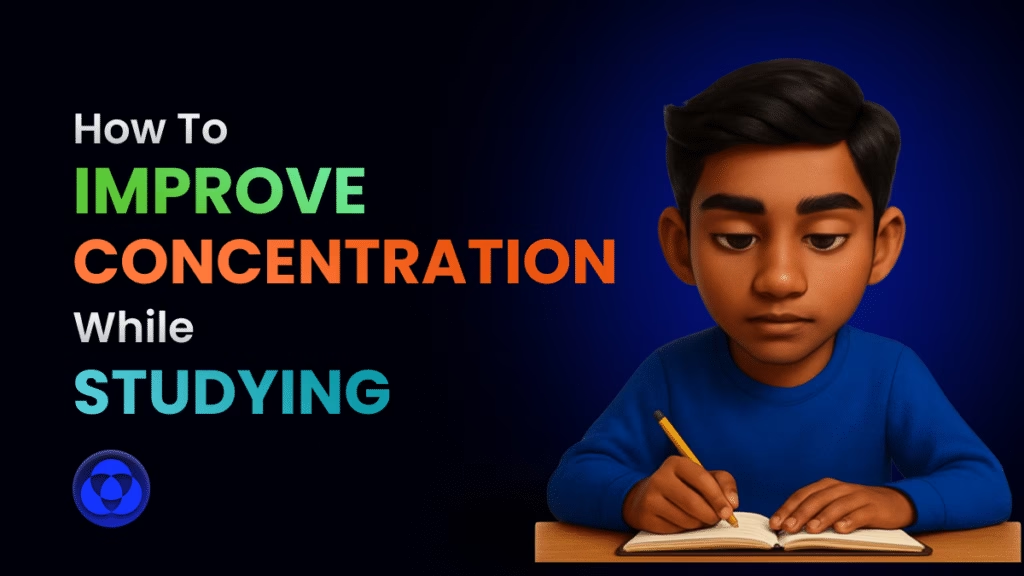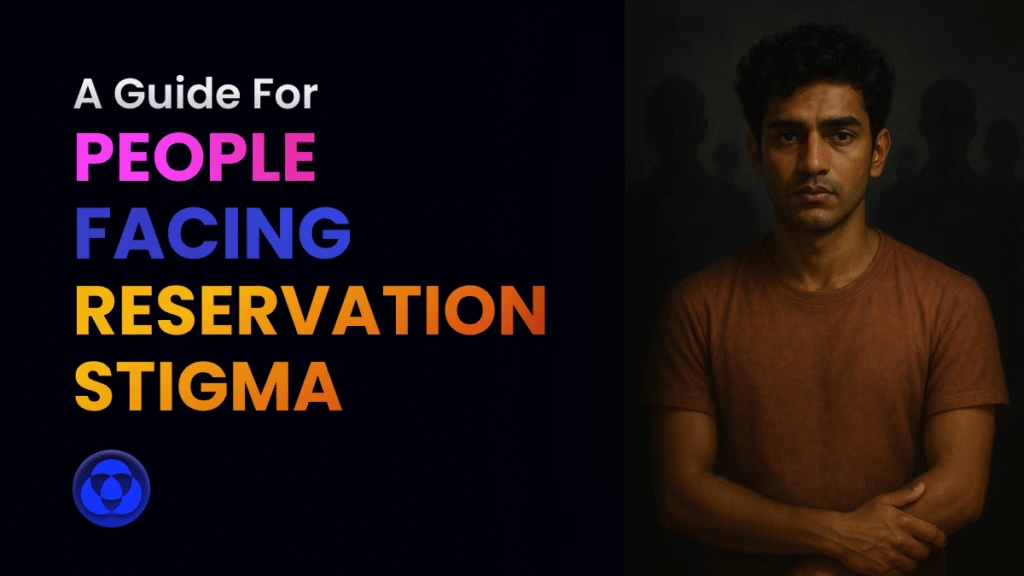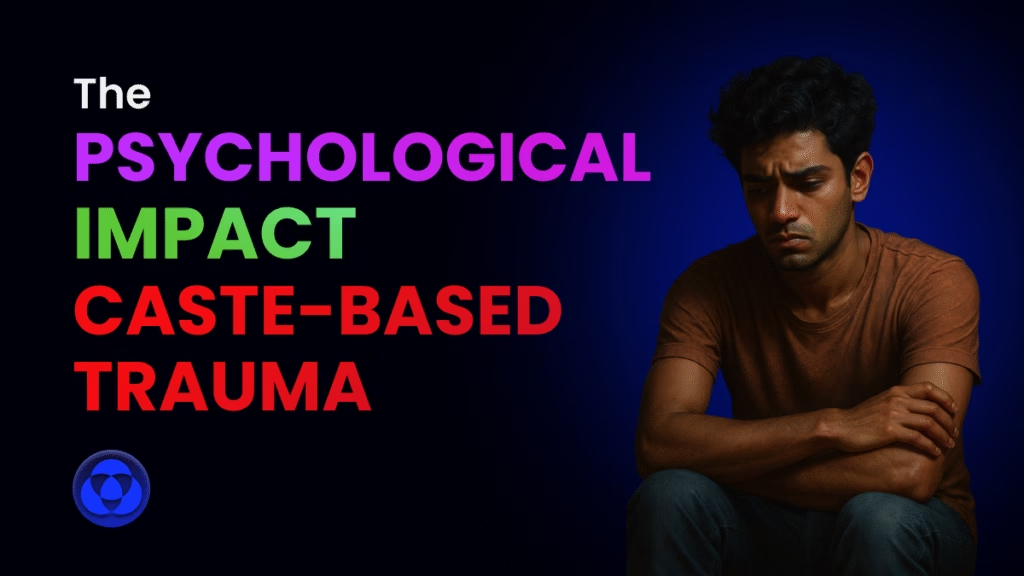Have you ever studied really hard for hours, only to forget everything the next day? Maybe you read the same page again and again, but nothing stays in your mind. It can feel frustrating and make you doubt yourself. Many Bahujan students feel this way, not because they aren’t smart, but because they are carrying a lot more than just books.
Sometimes, you may ask yourself, “Is there something wrong with me? Why can’t I remember like others do?” These thoughts are common, especially when you’ve grown up facing challenges like poverty, caste discrimination, or family responsibilities. But let us tell you clearly: there is nothing wrong with your brain. You are not broken. You are trying to learn and grow in a world that often makes it harder for students like us.
Memory and concentration are not just about how hard you study. They are also deeply affected by how safe, rested, and supported you feel. When your mind is busy worrying about money, food, safety, or how people treat you in school or college, it becomes harder for your brain to hold on to new information. This is not your fault. It’s the weight of survival stress, and it’s real.
This article is for you. It will help you understand what affects your memory and give you simple, science-based tips that actually work. No judgment. No big words. Just support, truth, and small steps that you can try, one day at a time. Because your mind is powerful, and you deserve to learn in a way that works for you.
Understanding Memory: How Does It Work?
Our brain is powerful, but like any tool, it works best when we know how to use and take care of it. This section will help you understand the science of memory in simple terms, so you can build better habits as a learner.
The Three Stages of Memory: Encoding, Storage, Retrieval
Think of memory like a cycle with three major stages:
Encoding: This is when your brain first takes in information, like reading a page in your textbook or hearing your teacher explain a concept. If you’re distracted or anxious, your brain won’t encode that information well. This is why attention and mood matter so much.
Storage: After encoding, your brain stores the information. This storage can be short-term (like remembering a phone number for a few seconds) or long-term (like remembering how to solve a math problem even after a week). What helps with long-term storage? Repetition, meaning, and connection with things you already know.
Retrieval: This is when you try to recall what you’ve learned, like during an exam. If the information was well-encoded and stored, retrieval becomes easier. But stress can block this process, even if you do know the answer.
For Bahujan students, especially those facing caste-based discrimination and pressure, the retrieval stage can be affected by performance anxiety or fear of being judged. Recognizing this is not a personal failure but a response to stress can help you be kinder to yourself.
How Stress, Nutrition, and Sleep Affect Our Memory
Many Bahujan students juggle multiple challenges, whether it’s family responsibilities, financial limitations, or fighting the subtle and loud messages of caste-based inferiority in schools and colleges. These factors can deeply affect brain function, especially memory.
Stress: Chronic stress, such as what happens when you’re made to feel “less than” in academic spaces, can shrink parts of the brain responsible for memory, like the hippocampus. It also affects concentration and makes it harder to store and recall information.
Nutrition: Memory isn’t just about mental practice; it’s also physical. Our brain needs energy and nutrients to function. Diets low in iron, B-vitamins, or omega-3s (which are common in marginalized communities with limited access to balanced food) can affect memory and focus.
Sleep: This is when our brain processes and organizes everything we learned during the day. Poor sleep, whether due to overworking, stress, or difficult home environments, directly weakens memory and reduces learning capacity.
Improving memory isn’t just about more effort. It’s also about better care. You deserve rest, nutrition, and peaceful spaces to grow. These are not luxuries; they are rights.
What Science Says About Focus and Attention in Learning
Focus is the bridge between you and memory. If you’re not focused when learning, your brain won’t properly encode the information.
Here’s what science tells us:
- Focused attention activates deeper parts of the brain that help store information in long-term memory. That means even a short, focused study session is more useful than hours of distracted reading.
- Multitasking is a myth. Your brain cannot focus deeply on two things at once. This is why trying to study while checking WhatsApp or Instagram reduces your retention.
- Mindfulness practices improve attention. Simple breathing exercises, regular breaks, and reducing noise while studying can dramatically improve your focus.
For Bahujan students dealing with caste-related trauma or constant social comparison in school, it’s important to create a safe mental space while studying. This space should be free from judgment and filled with self-affirmation. Saying to yourself, “I deserve to learn. My mind is capable,” is not just emotional support; it actually helps improve cognitive performance.
Real Barriers Faced by Bahujan Students
Before offering advice on memory techniques or concentration hacks, it’s important to speak honestly about the real-life barriers that Bahujan students face every day. These are not just “personal problems.” They are the result of historical exclusion, generational injustice, and systemic caste-based discrimination.
Improving memory and retention isn’t only about what’s happening inside the brain. It’s also about the conditions in which a student is expected to learn. For many Bahujan students, those conditions are deeply unequal and unfair.
Overcrowded Homes, Long Chores, and Lack of Study Space
Many Bahujan families live in overcrowded homes, often in rented spaces with shared rooms and thin walls. In such environments, finding a quiet place to study can feel nearly impossible. On top of this, there is the daily burden of chores, care work, and responsibilities that often fall on children in marginalized families, especially girls. In these situations, studying becomes more than a matter of “discipline” or “time management.”
Imagine trying to memorize a chapter while:
- Cooking for the family
- Helping siblings with their homework
- Managing water collection in areas with limited supply
- Trying to concentrate despite TV noise, loud arguments, or cramped spaces
For students from privileged caste groups, having a private room and Wi-Fi might be a given. For Bahujan students, even a few minutes of silence is a major achievement. Memory needs focus, and focus needs space. So if you are struggling, you are not lazy. You are surviving under difficult conditions.
Low Confidence from Years of Caste-Based Discrimination
Memory functions best when the mind feels safe to explore, take risks, and build connections. But what happens when, from childhood, you are constantly made to feel that you are not good enough?
Caste-based discrimination in schools and colleges often shows up as:
- Teachers doubting your abilities
- Being mocked for your language, accent, or clothing
- Being excluded from group work or discussions
- Being labeled “less capable” without any evidence
These experiences are not just painful. They damage self-confidence in lasting ways. When you begin to believe you are not smart, your brain hesitates. You stop asking questions, avoid revising because you expect failure, and feel ashamed when you forget things.
This is not a failure of your memory. It is the result of internalized oppression. The real issue is a system that never supported your belief in yourself. Healing begins with recognizing your worth. You deserve to learn, grow, and succeed.
Emotional Trauma and Mental Fatigue That Affects Retention
Think of your brain as a sponge. It can only absorb information if it is not already filled with stress, fear, and emotional pain.
Many Bahujan students carry:
- Generational trauma from poverty, landlessness, or historical violence
- Personal trauma from being insulted, humiliated, or excluded in casteist environments
- Mental fatigue from having to work “twice as hard” just to be seen as “good enough”
This emotional weight doesn’t only affect your heart; it also impacts your brain. Trauma impacts the hippocampus (which handles memory), the prefrontal cortex (responsible for decision-making), and the amygdala (which manages emotions). So when Bahujan students say they forget things often, it is not because they don’t care. It is because their minds are constantly managing emotional stress just to function in a casteist world.
Memory thrives in calm conditions. But for many of us, peace has never been a given.
Still, we survive. Still, we study. Still, we rise. Understanding the root of these barriers is the first step toward building solutions that reflect our lived reality not ignore it.
10 Practical Techniques to Improve Memory and Retention
Bahujan students face unique challenges, but that doesn’t mean we can’t develop strong learning strategies. Memory isn’t fixed; it can be trained, improved, and strengthened. These practical methods are not about working harder, but about working smarter, in ways that make sense for your life and background.
Here are 10 powerful techniques you can start using today, whether you’re in school, college, or preparing for a competitive exam.
1. Use Visual Learning (Mind Maps, Flashcards, Charts)
Our brains remember visuals better than plain text. If you struggle to remember something, draw it out.
- Use mind maps to connect ideas (great for history or science)(Apps like Obsidian).
- Make flashcards for definitions or formulas.
- Turn boring notes into charts or diagrams with color.
Even a quick sketch can create a memory hook. This method works well in overstimulating environments, where attention is hard to hold.
✍🏾 Tip: Use old notebooks, walls, or chalk to draw. Don’t wait for fancy tools; make use of what you already have.
2. Active Recall and Spaced Repetition – Science-Backed Methods
Active recall means testing yourself without looking at the book. Spaced repetition means revisiting topics over time, not all at once.
For example:
- After reading a topic, close the book and try to recall the key points out loud.
- Review it again after a day, then after three days, then a week. This trains your brain to hold onto it longer.
Apps like Anki or physical flashcards help with this. These are scientifically proven to build long-term memory.
💡 Reminder: Memory improves with effort. Forgetting once doesn’t mean failure; it is part of the learning process.
3. Teach Someone Else What You Just Learned
This is one of the best ways to test your memory: If you can explain it simply, you’ve truly understood it.
- Teach a younger sibling.
- Explain it to a friend.
- Pretend you’re teaching a class.
This helps organize your thoughts, find gaps in your memory, and reinforce what you know.
🎙️ Why it works: Teaching activates different brain areas than passive reading. It turns you into an active learner.
4. Make Learning Personal and Emotional – Tell Stories
Memory works better when it’s tied to emotion and meaning. That’s why we remember stories better than bullet points.
- Connect facts with real stories from your life or community.
- Turn textbook info into imaginary characters or events.
- Add humor or emotion to make facts stick.
For example, learning about Ambedkar’s education? Picture him walking miles to school, reading under streetlights. Connect that image with your own journey.
🧠 Fact: The brain remembers emotion-rich material more than dry facts.
5. Learn in Short Bursts, Not Long Hours
Studying for long hours without breaks exhausts your brain. It’s better to study in focused, 25–30 minute sessions with 5-minute breaks (also called the Pomodoro technique).
Why?
- It keeps your attention sharp.
- It gives your brain time to process and store information.
- You feel less overwhelmed.
📆 Strategy: 3 sessions of 30 minutes = better results than 3 hours of distracted reading.
6. Use Local Language and Cultural Examples
If you’re studying in English or Hindi but your thoughts come in your mother tongue, use that to support your learning instead of resisting it.
- Translate tough topics into your local language first.
- Use familiar cultural stories, farming examples, or home experiences to make abstract ideas real.
This bridges the gap between concept and context, and makes learning less alien.
🌱Respect your roots: Learning in your own way is not ‘less than’; it is brilliant and strategic.
7. Write and Revise Instead of Just Reading
Reading alone creates weak memory traces. But writing activates deeper memory.
- After reading a topic, close the book and write what you remember.
- Then check what you missed.
- Rewrite and summarize in your own words.
This process of writing, checking, and rewriting improves both memory and clarity.
✍🏽 Use this even during revision time. Don’t just read; write your notes again in a shorter, clearer form.
8. Reduce Phone Distractions with Simple Daily Rules
Phones can be helpful tools, but constant notifications ruin focus and memory.
Try this:
- Turn off notifications during study time.
- Keep the phone in another room if possible.
- Use a simple rule: “No phone 30 mins before and after study.”
Apps like Forest or Focus Mode can help.
📵 Distraction is the enemy of memory. Give your brain the respect it deserves.
9. Use Meditation or Breathing Before and After Studying
Stress blocks memory. A few minutes of deep breathing can calm your nervous system and help you focus.
Before studying:
- Sit with eyes closed.
- Breathe in slowly for 4 counts, hold for 4, breathe out for 4.
- Repeat for 2–3 minutes.
After studying:
- Do the same to allow your brain to process and rest.
This simple technique reduces anxiety, improves focus, and helps store information better.
🧘🏽 Mental calm is a superpower in a chaotic world.
10. Keep a “Memory Journal” to Track What You Remember
A memory journal is a personal tool where you note:
- What you studied today
- What you remembered easily
- What you forgot and why
- One small improvement for tomorrow
This builds self-awareness and confidence. You’ll start seeing progress and patterns—what works for you and what doesn’t.
📔 Your brain is a living system. Tracking it makes you an expert in your own learning.
These techniques don’t require coaching classes or expensive tools. They rely on commitment, creativity, and care, which are qualities Bahujan students already demonstrate every day through their resilience.
Nutrition, Rest, and Routine: The Foundations of Memory
Improving memory is not just about how you study. It is also about how you live. Your brain needs fuel, rest, and rhythm. For Bahujan students juggling survival and study, these basic needs often get ignored. But they are not luxuries. They are essential tools for success.
Simple Brain-Friendly Foods You Can Afford
You don’t need costly supplements. Just include these basics in your daily meals:
- Groundnuts (peanuts) – full of healthy fats and protein
- Bananas – give quick energy and boost brain function
- Green leafy vegetables (like spinach, mustard greens) – support memory
- Rice and dal – balanced brain fuel when eaten regularly
- Water – dehydration makes you forgetful
🍴 Tip: Eat at regular times, and never skip breakfast before studying or exams.
Sleep Is Not Laziness – It’s a Study Tool
Sleep is when your brain locks in what you’ve learned.
- Aim for 7–8 hours of sleep, especially before exams.
- Don’t study all night—it reduces retention.
- Short power naps of 20 to 30 minutes during the day help if your nights are disturbed
🛏️ Truth: Resting is not wasting time. It’s building memory quietly.
Fixed Daily Routines That Train the Brain to Learn
Our brains love rhythm. A simple daily routine tells your mind: “It’s time to focus.”
- Wake, study, eat, and sleep at similar times daily
- Use a dedicated place and time for studying—even a small corner
- Do a short ritual (like lighting a lamp, or 2 minutes of silence) before starting
📅 Why it works: Repeating a pattern builds strong memory habits and reduces mental stress.
Final Thoughts: Learning Is Resistance, Memory Is Power
To remember, to learn, to understand deeply are not just academic skills. For Bahujan students, they are acts of quiet resistance. Every page you turn, every concept you master, every moment you choose to study instead of giving in to a system that tells you you’re not enough, you are breaking centuries of silence. You are building what your ancestors were denied.
You come from a lineage that has survived unimaginable injustice. And now, through learning, you are not just surviving. You are rising. Memory is not just a brain function. It is the power to carry forward dreams, to reclaim stolen histories, and to plant new visions in the soil of your community. Every formula you memorize, every story you retain, every truth you understand becomes a tool to rebuild what was broken.
“The mind once stretched by a new idea never returns to its original size.” — Oliver Wendell Holmes
When you stretch your mind, you expand the boundaries of what is possible for every Bahujan child who comes after you. This is more than personal growth. It is generational healing. You are building not just your future, but the confidence of a whole community that has been told for too long that it does not belong in libraries, classrooms, or universities. Your learning is living proof that we do belong.
And remember, you are not doing this alone. Across villages, towns, cities, WhatsApp groups, coaching centres, night study corners, and dusty classrooms, millions of Bahujan minds are awakening. You are part of a knowledge movement rooted in Ambedkarite courage and carried forward by every Bahujan student who dares to dream.
Keep learning. Keep remembering. Keep resisting. Because your mind is not just a place of memory. It is a weapon of liberation.

